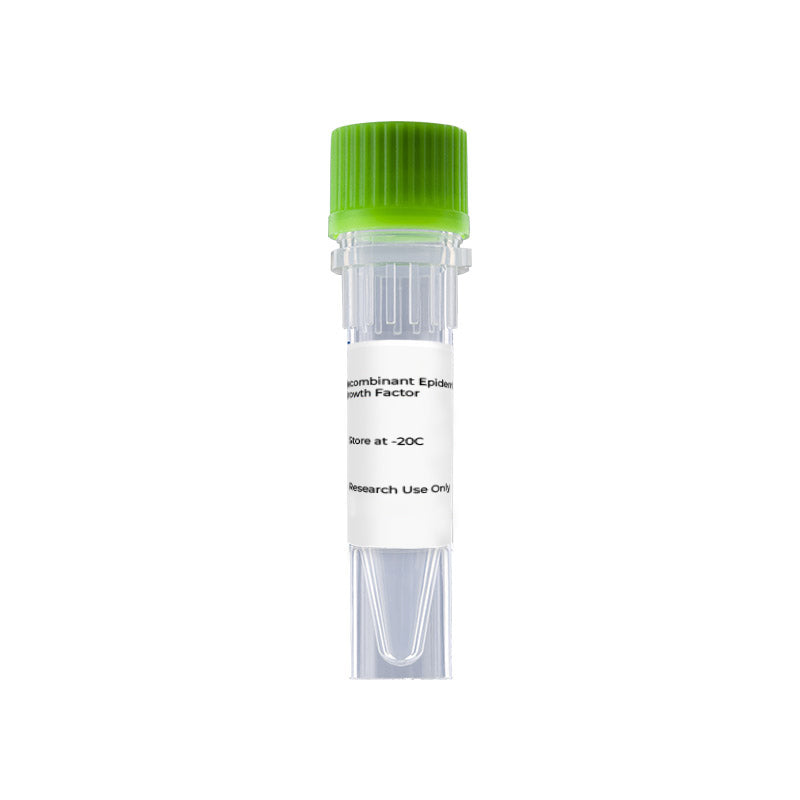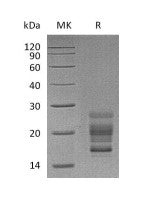1
/
of
2
Recombinant Mouse IL-17A (C-6His)
Recombinant Mouse IL-17A (C-6His)
Recombinant Mouse Interleukin-17A is produced by our Mammalian expression system and the target gene encoding Thr22-Ala158 is expressed with a 6His tag at the C-terminus.
Catalog No:
EPT207
Regular price
$259.00 USD
Regular price
$199.00 USD
Sale price
$259.00 USD
Unit price
/
per
Couldn't load pickup availability
Product Details
Accession
Q62386
Molecular Weight
16.2 KDa
Apparent Molecular Weight
17-26 KDa, reducing conditions
Purity
Greater than 95% as determined by reducing SDS-PAGE.
Endotoxin
Less than 0.001 ng/µg (0.01 EU/µg) as determined by LAL test.
Expression Host
Mammalian
Reconstitution
Always centrifuge tubes before opening.Do not mix by vortex or pipetting.
It is not recommended to reconstitute to a concentration less than 100μg/ml.
Dissolve the lyophilized protein in distilled water.
Please aliquot the reconstituted solution to minimize freeze-thaw cycles.
Shipping Condition
The product is shipped at ambient temperature. Upon receipt, store it immediately at the temperature listed in the Storage field.
Storage Condition and Shelf Life
Lyophilized protein should be stored at < -20C, though stable at room temperature for 3 weeks.
Reconstituted protein solution can be stored at 4-7°C for 2-7 days.
Aliquots of reconstituted samples are stable at < -20C for 3 months.
Background
Interleukin-17 is a potent pro-inflammatory cytokine produced by activated memory T cells. There are at least six members of the IL-17 family in humans and in mice. Mature mouse IL-17A shares 61% and 89% amino acid sequence identity with human and rat IL-17A, respectively. As IL-17 shares properties with IL-1 and TNF-alpha, it may induce joint inflammation and bone and cartilage destruction. This cytokine is found in synovial fluids of patients with rheumatoid arthritis, and produced by rheumatoid arthritis synovium. It increases IL-6 production, induces collagen degradation and decreases collagen synthesis by synovium and cartilage and proteoglycan synthesis in cartilage. IL-17 is also able to increase bone destruction and reduce its formation. Blocking of interleukin-17 with specific inhibitors provides a protective inhibition of cartilage and bone degradation.
Analyte
IL-17A
Regulatory Status
For Research Use Only



